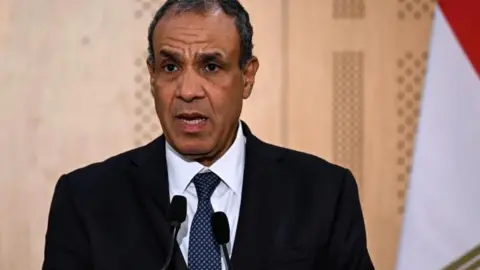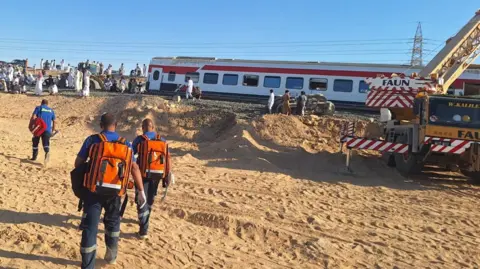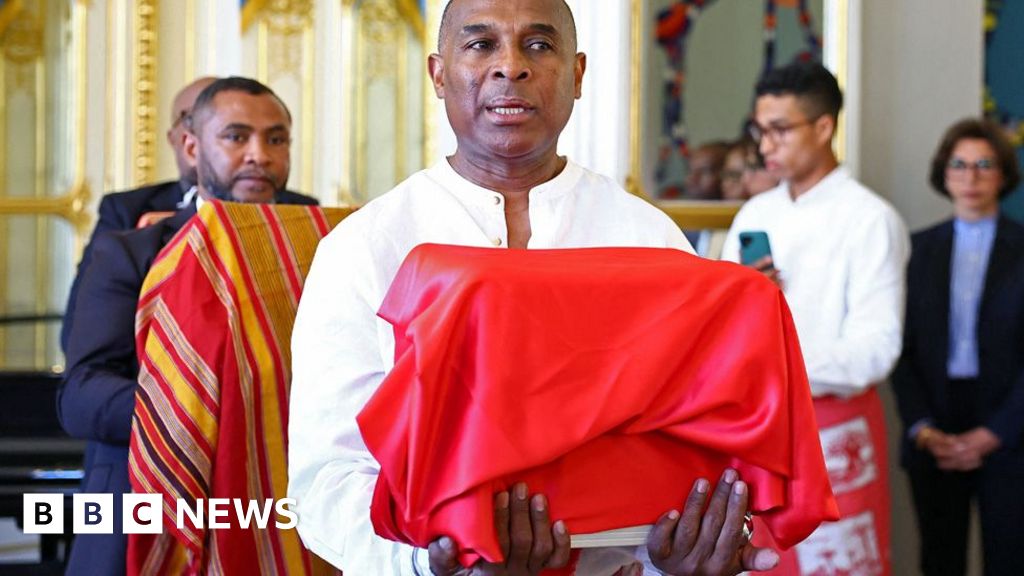Mount Sinai Faces Transformation Into Luxury Mega-Resort Amidst Controversy
For years, visitors would venture up Mount Sinai with a Bedouin guide to watch the sunrise over the pristine landscape or engage in hiking activities. Now, one of Egypt’s most revered locations, sacred to Jews, Christians, and Muslims, is embroiled in a contentious debate over its transformation into a tourism mega-project.
Known locally as Jabal Musa, Mount Sinai is considered the site where Moses received the Ten Commandments and where God is said to have spoken to him from the burning bush.
The ancient St Catherine's Monastery, run by the Greek Orthodox Church, remains a focal point, with monks still residing on-site despite government intentions to close it, which were reportedly halted under pressure from Greek authorities.
Serious apprehensions linger over how this UNESCO World Heritage site, encompassing the monastery, surrounding town, and the mountain, is being transformed with construction of luxury hotels, villas, and shopping bazaars, changing the fabric of this prominent spiritual landscape.
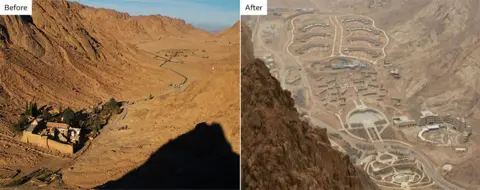
Home to a traditional Bedouin community, the Jebeleya tribe has witnessed the demolition of their homes and tourist eco-camps with minimal compensation, as new developments progress. They've even been requested to relocate graves in local cemeteries to facilitate new parking spaces.
Described by British travel writer Ben Hoffler, the project appears as a forced imposition, harming both the local community and the region's sacred ambiance it aims to attract.
“This is not development as the Jebeleya see it or asked for it,” he emphasized, underlining the clash between local heritage and government interests. “A new urban world is being built around a Bedouin tribe of nomadic heritage, a world they did not consent to and one that will change their lives forever.”
The concerns over these rapid developments are echoed among locals, who feel increasingly marginalized in discussions regarding their land.
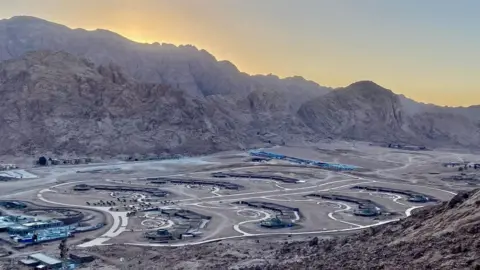
Greece has been the most outspoken nation regarding the Egyptian transformation plans, due to its bond with the monastery. After an Egyptian court ruled in May that St Catherine's Monastery is located on state land, tensions escalated. Judges asserted that while the monastery is entitled to its usage, it does not own the land nor its surroundings.
Archbishop Ieronymos II of Athens was quick to react, decrying the court ruling as a seizure of the monastery's property, stating it represents a profound threat to the Orthodox identity and cultural heritage.
In a rare interview, St Catherine's Archbishop Damianos expressed his feelings of betrayal over the decision, leading to divisions within the monastery and his eventual resignation.
The Greek Orthodox Patriarchate highlighted the significance of St Catherine's site as a peace enshrined by historical ties between Christianity and Islam, marked by a mosque built during the Fatimid era. They urged for the preservation of this harmonious heritage against the pressures of modernization.
Despite ongoing diplomatic efforts, the ruling remains and concerns regarding the site’s future echo through various international circles.

'Special gift' or insensitive interference?
Initiated in 2021, Egypt's Great Transfiguration Project aims to expand tourism opportunities through the construction of hotels, eco-lodges, and enhanced visitor facilities, promising economic revival.
Government officials present the endeavor as a gift to world religions, asserting it maintains environmental integrity. However, critics emphasize that the natural beauty of the area is being compromised.
Continued developments, including construction of accommodations and roads, unfold within the historically rich landscape, traditionally home to Moses' followers and pivotal biblical events.
UNESCO is particularly wary of these changes, underscoring the need for preservation of cultural, historical, and environmental values as construction reshapes the area.
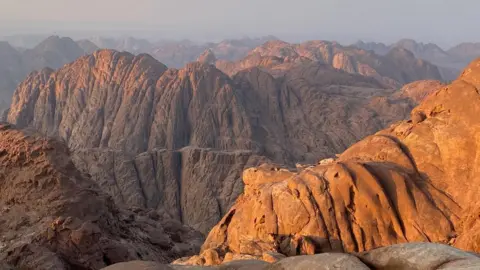
Despite international calls to halt developments, including a push by World Heritage Watch, progress continues, as the Egyptian government focuses on revitalizing the economy amid global crises.
Past controversies involving the historical sensitivity reflect ongoing tensions in negotiations between economic development and heritage preservation, especially under the shadow of unrest in the region.
Local Bedouin communities, feeling marginalized by contemporary development, are demanding recognition and inclusion as government policies reshape their homeland.
Though the St Catherine's Monastery has weathered many changes over centuries, the current transformations threaten to irreversibly alter the ecological and cultural landscape for generations to come.





